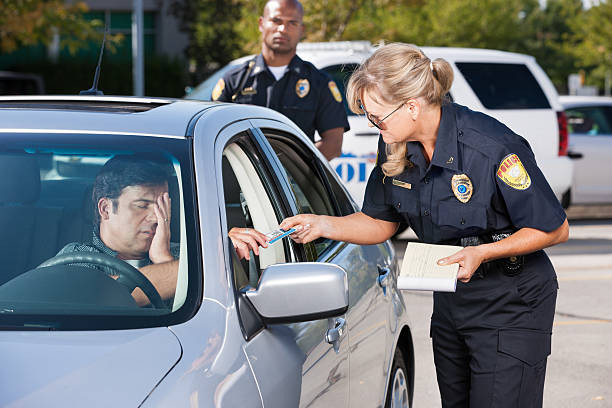Navigating Traffic Stops: Understanding Your Rights as a Driver
Introduction:
Getting pulled over can be more than just a routine interruption to your day—it's a moment that really puts your knowledge of your rights to the test. Whether you're a seasoned driver who's navigated the roads for years or a newcomer behind the wheel, understanding how to handle a traffic stop with awareness and poise is crucial. Knowing what to expect and how to respectfully assert your rights can significantly influence the outcome of the interaction. This guide is here to walk you through your essential rights during a traffic stop and offer practical advice on how to exercise them effectively. It's all about ensuring that both you and the officer involved can handle the situation with clarity and respect. Gaining this understanding not only helps make the stop more manageable but also ensures your legal and personal protections are upheld during these encounters.
Right to a Safe Stop:
When you see the flashing lights of a police car signaling you to pull over, it’s your right to choose a safe place to do so. This means you can continue driving at a safe speed until you reach a well-lit parking lot, a rest area, or a quiet side street where you feel secure stopping. Ensuring your safety and the safety of the approaching officer is paramount, and choosing the right spot can prevent potential accidents and misunderstandings during the stop.
Knowing Why You Were Stopped:
After you've pulled over safely, it’s entirely within your rights to inquire politely about the reason for the stop. Understanding why you were pulled over is not just about satisfying curiosity—it's about clarifying the situation so you can respond appropriately. A clear and polite question often results in a straightforward answer from the officer, which can help you gauge how best to proceed with the interaction.
Miranda Rights:
In the event that a traffic stop escalates to an arrest, you are entitled to be informed of your Miranda rights. These rights are a fundamental part of legal protection in the United States, designed to ensure you are aware that you have the right to remain silent and the right to an attorney. These rights prevent you from self-incrimination during police interrogation following an arrest.
Right to Remain Silent:
Although you must provide your basic identification like your license, registration, and proof of insurance, you are not obligated to answer further questions about where you’re coming from, your destination, or whether you have committed an infraction. Politely declining to provide more information than legally required can protect you from potential self-incrimination. It’s important to communicate your choice to remain silent in a respectful manner to maintain a cooperative atmosphere during the traffic stop.
Declining a Vehicle Search:
You have the legal right to decline a search of your vehicle unless the officer has a valid warrant, your consent, or probable cause to believe that your vehicle contains evidence of a crime. Clearly stating that you do not consent to a search can protect your privacy and prevent legal complications. However, if the officer insists on conducting a search despite your refusal, it’s crucial to not physically resist but to reiterate your non-consent verbally.
Sobriety Tests:
You can refuse to undergo field sobriety tests and breathalyzer tests; however, it’s essential to be aware of the legal implications of such a refusal. In many states, refusal can result in immediate penalties such as the suspension of your driving license, known as "implied consent laws." Before deciding to refuse, make sure you are informed about the specific regulations and potential consequences in your jurisdiction.
Asking to Leave:
Once the officer concludes the interaction—perhaps after issuing a citation or giving a verbal warning—you have the right to ask if you are free to go. This question clarifies your status: whether you’re being detained for further investigation or are free to resume your journey. If the officer says you are not being detained, you should be able to leave the scene calmly and safely.
Conclusion:
Traffic stops can be stressful, but knowing your rights helps you navigate them with confidence and calm. Being informed and prepared not only ensures your safety but also upholds your legal protections during these interactions.
At Get Drivers Ed, we're committed to empowering drivers with knowledge that extends beyond the basics of operating a vehicle. We offer comprehensive courses that cover a wide range of driving situations, including how to handle legal encounters on the road. Join us to become not just a skilled driver, but a well-informed one, too.
Take the Next Step:
Ready to deepen your understanding of driving laws and become a more confident driver? Enroll in Get Drivers Ed today. Our expert instructors are here to guide you through every aspect of driving safety and compliance. Sign up now and start your journey to mastering the roads with assurance and insight!

